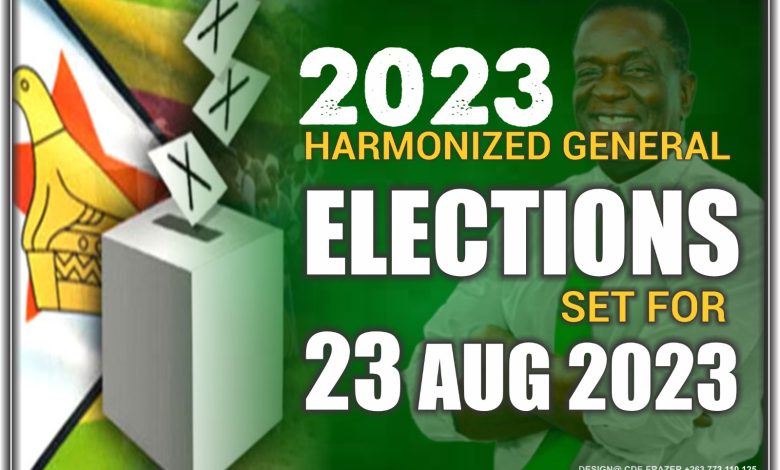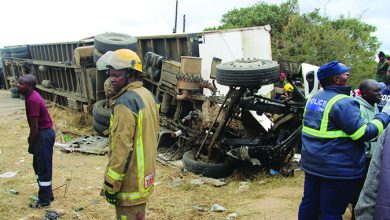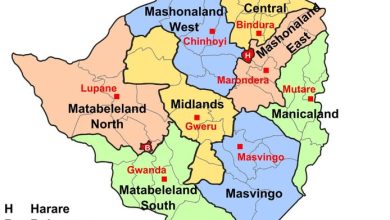Explainer: What next after election date proclamation?

By Staff Reporter
WHO qualifies to be an election candidate?
A person qualifies for election as President if he or she–
a. is a Zimbabwean citizen by birth or descent;
b. has attained the age of forty years;
c. is an ordinarily resident in Zimbabwe; and
d. is registered as a voter.
A person is disqualified for election as President or Vice-President if he or she has already held office as President under this Constitution for two terms, whether continuous or not, and for the purpose of this subsection three or more years’ service is deemed to be a full term.
In terms of parliament, a person is qualified for election as a Member of the National Assembly if he or she–
a. is registered as a voter; and b. is at least twenty-one years of age.
One can run for Senate if he or she–a. is registered as a voter; and b. is at least forty years of age;
Who is eligible to vote?
Only those registered to vote two days after the proclamation are eligible to vote and those who register after that cannot vote in this year’s election.
When will ballot papers be printed?
Ballot papers can only be printed after the sitting of the nomination Court on 21 June.
The Zimbabwe Election Commission cannot prepare ballot papers before candidates are known.
How much must candidates pay as Nomination Fees?
The Zimbabwe Electoral Commission (ZEC) pegged presidential candidate nomination fee at US$20 000, up from US$1 000 in this year’s election.
A Member of Parliament and local authority candidate will part with US$1 000 up from US$50 and a proportional representation member will pay US$200, up from US$100 to participate in this year’s election.
The fees were gazetted through Statutory Instrument (SI 144).
Why was a Run-off date included in the election proclamation?
National Constitutional Assembly (NCA) leader and University of Zimbabwe law lecturer, Professor Lovemore Madhuku explained that there was nothing amiss with the inclusion of the runoff date in the proclamation notice.
“By law, the President is required to simultaneously announce the election date and the run-off date in case there is no candidate who gets 50 percent of the valid votes cast and above.
“The top two candidates in the 23 August elections automatically qualify for the run-off and the winner is required to garner 50 percent plus one vote,” explained Professor Lovemore Madhuku
Zimbabwe held its first-ever presidential run-off also known as a re-run in 2018.
The re-run was conducted on 27 June 2008.
The late former president, Cde Robert Mugabe won the re-run after the later Movement for Democratic Change leader Morgan Tsvangirai pulled out of the race.
Before the re-run, President Mugabe had 43.2 percent in elections in March while Mr Tsvangirai got 47.9 percent, short of the absolute majority needed for a first-round victory.
In the 2018 presidential election, President Emmerson Mnangagwa won 50.8 percent of the votes while his closest contender, Advocate Nelson Chamisa, who was running on the ticket of the Movement for Democratic Change (MDC) Alliance had 44.3 percent. President Mnangagwa garnered enough votes to avoid a run-off
What now for Electoral Amendment Bill before Parliament?
Any electoral law that is passed after an election proclamation cannot apply in that year’s election. ZEC chief elections officer Mr Utloile Silaigwana said once the President proclaims the election date, the commission will run an election with an existing law.
“Ordinarily, any law that changes after proclamation has no effect on the way elections are going to be conducted. It is up to the legislators if they legislate early enough then that will have an effect in the coming elections. But if they don’t then they will be out of time,” said Mr Silaigwana.
When will parliament be dissolved?
Parliament is elected for a five-year term which runs from the date on which the President-elect is sworn in and assumes office in terms of section 94(1)(a) of the Constitution, and Parliament stands dissolved at midnight on the day before the first polling day in the next general election called in terms of section 144 of the constitution.
Credit – Chronicles Zimbabwe




